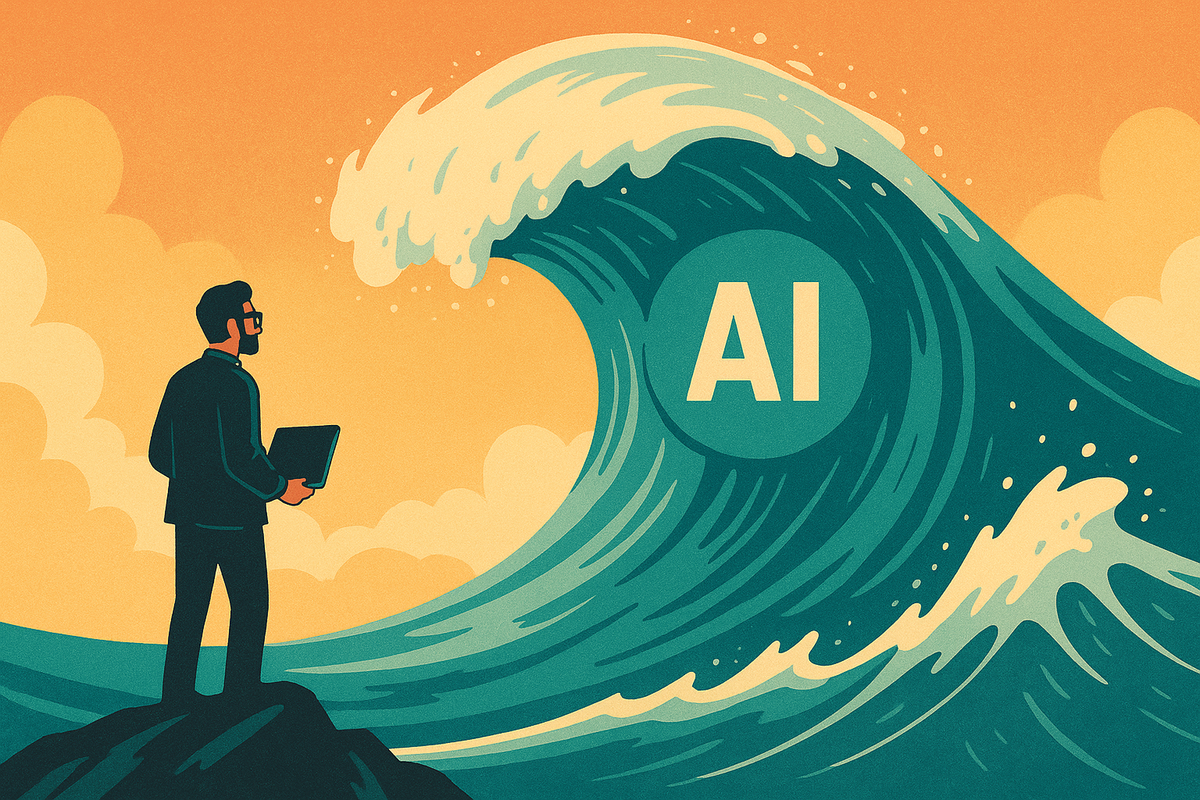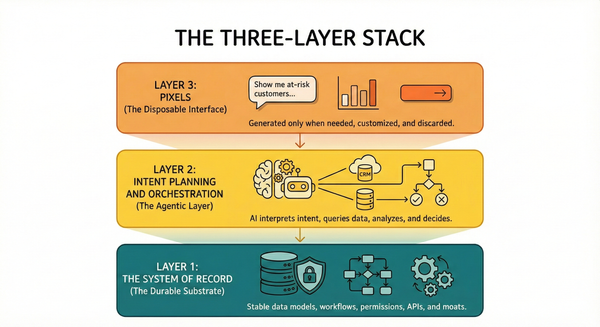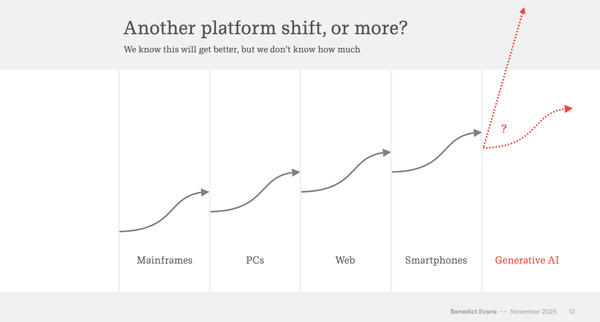Tokens Are Cheap, Strategy Is Expensive
AI has made software development simultaneously easier and more challenging. This paradox is reshaping the industry.

The AI Wave: Too Big to Ride?
In an era where artificial intelligence is transforming how we work, a quieter revolution is taking place in software development itself. While everyone focuses on AI's impact on jobs, its effect on how we build tech products deserves equal attention.
The Problem No One Talks About
AI has made software development simultaneously easier and more challenging. This paradox is reshaping the industry in two key ways:
1. Disposable Software is Everywhere
Tools like Lovable and Bolt now enable developers to build prototypes in hours rather than weeks. This acceleration allows for rapid shipping and testing of ideas. However, this speed comes with a tradeoff—what's being built often lacks staying power. The result is an abundance of demos rather than sustainable products customers can rely on long-term.
2. The Durability Crisis
Software development traditionally resembled building a house: invest significant effort upfront, launch the product, and support it for years. Today's landscape is drastically different. The pace of change means that by the time a product launches, the underlying AI models, platforms, and customer expectations may have already evolved. Software is increasingly becoming perishable, and the long game is fading away.
So Where Do You Play?
Competing directly with giants like OpenAI, Google, or Anthropic is unlikely to succeed. These companies have unmatched advantages in talent, computing resources, and distribution channels. Instead of challenging these titans on their home turf, successful players will focus on areas the giants overlook.
3 Smart Ways to Win:
✅ Pick Messy Problems
Major AI companies gravitate toward clean, general-purpose use cases. The opportunity lies in tackling messy, narrow challenges that require specialized knowledge:
- Healthcare analytics
- Regulatory compliance
- Logistics optimization
These domains are complex and require deep expertise—precisely what makes them valuable opportunities.
✅ Own Unique Data
Access to private, structured, hard-to-replicate data represents a significant competitive advantage. This proprietary information creates a moat that large models cannot cross. Building value on top of unique data positions you where major players cannot easily follow.
✅ Leverage Distribution You Already Have
You might not have the most advanced model, but existing trust, strong customer relationships, and established partnerships are invaluable assets. As Sam Altman noted, "The most underrated part of building a company is distribution." These connections provide an edge that's difficult for competitors to replicate.
What's Happening Right Now
Recent market developments highlight these dynamics:
- Windsurf, a fast-scaling AI startup, is reportedly being acquired by OpenAI, demonstrating that rapid growth doesn't guarantee long-term independence.
- Perplexity AI offered ChatGPT-style search capabilities, only to see ChatGPT integrate similar functionality. When platforms evolve, competitive advantages can vanish overnight.
- Google's advertising model faces potential disruption as users might soon conduct holiday shopping directly within ChatGPT via Shopify integrations, bypassing traditional search entirely.
Strategy and Product Sense are Matter More Than Ever
We've entered an era where computing resources are affordable, APIs are accessible, and AI models are widely available. What remains scarce is strategic clarity.
While anyone can integrate with GPT or similar technologies, not everyone can build thoughtfully around these tools. Success requires moving beyond chasing every new development and instead focusing on identifying sustainable competitive advantages.
Be deliberate in your approach. Select your niche carefully. Protect your competitive edge.
Tokens are cheap. Strategy is expensive.





